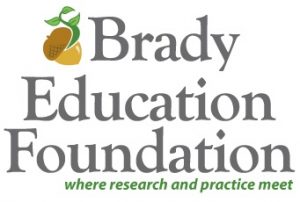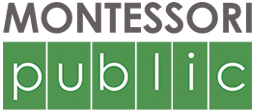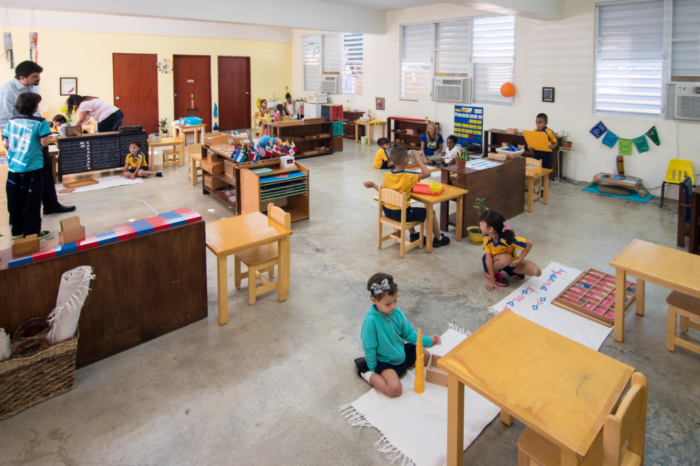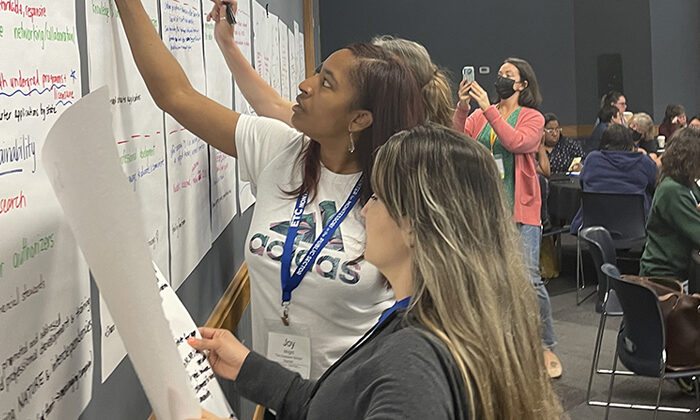Brady Education Foundation: $3M for Public Montessori Research
“Why doesn’t someone do some research on Montessori to prove that it works?”
That’s a question that has animated the Montessori world for decades. The answer is complicated, and depends a lot on your definitions of “Montessori”, “prove”, and “works”. What counts as Montessori? What do we mean by “it works”? What would qualify as proof?
But in the last ten years, thanks to the tireless and at times thankless work and contributions of many individuals and organizations, we’ve entered a Golden Age of Montessori research. Beginning wiith Angeline Lillard’s Montessori: The Science Behind the Genius in 2008, the five-year, 45 school Furman study in South Carolina completed in 2016, and the launch of the Journal of Montessori Research last year, along with many smaller but significant studies and projects, Montessori research has arrived.

- to conduct a rigorous evaluation of the impact of Montessori education
- to investigate whether Montessori education moderates the associations typically found between family income and achievement outcomes.
What does this mean? Here’s how this kind of thing works. The project was announced as a Request For Proposals (RFP in research funding jargon) in June of this year, with a timeline for interested parties. Applicants submit a five page Letter of Intent in September, and may be invited to submit a full proposal in January. Some applicants will advance to a final proposal in April, and funding decisions will be announced in June 2018. As five or six proposals will ultimately be funded from the $3,000,000, projects could have budgets in the range of $500,000 (smaller or larger depending on their scope). By comparison, the Furman study, at $370,000, was at the time the largest yet.
The Montessori Research Context

Bruno knew the foundation wasn’t big enough to do large operational funding—“We’re not Bill Gates big”. What she knew best was the research world, and the need for collaboration between researchers and practitioners. Another Brady board member (and Foundation Executive Director) Barbara Crockett, had been a Montessori teacher, principal (at Bruno’s children’s school!), and school founder. “I had done years of parent education using Angeline’s book (The Science Behind the Genius),” she said, “and I loved how she laid it out—how the precepts were supported by theory, and how she laid out what remains to be studied and proven.” At this stage, the Foundation was not well known, the board was casting about for projects to fund, and they literally called Lillard on the telephone to see if she had a project they could support.
As it turned out, she did. Lillard was ready to launch an ambitious follow-up to her earlier research, a three year longitudinal study of 141 children in Hartford public Montessori schools. The study met the Foundations’s two main criteria. First, the Montessori program was strengths-based, sustainable, feasible, and, as a public program, accessible to families. Second, the research was scientifically rigorous: because the schools use a lottery for admissions, it was possible to track the lottery “losers” and create a randomized control group. The point of these criteria was to develop data that school systems could actually use, and that would help bigger players (such as Gates) decide what to support.
The Foundation agreed to fund the study, but three years stretched into seven as a large enough sample was built up. Over that period, the Foundation engaged in what Bruno described as soul searching: “We were doing mostly small projects. But were we really helping funders and systems?” Brady began to consider a single, more targeted initiative. Montessori was considered, but wasn’t a lead contender until Lillard’s data started to come in. “We were blown away,” Crockett said, and the non-Montessorians on the board felt the same way.
Besides the data, another factor has played into support for this research and other recent projects. It used to be that internal conflicts in the Montessori world were a significant obstacle to outside investment. With little agreement on “what Montessori is” or whose Montessori should count, funders and researchers had no appetite to wade into a contested area. Thanks to the support of the Trust For Learning (as much as they prefer to downplay their role) in organizing the Montessori Leaders Collaborative, a convening of national Montessori organizations, the Montessori community has been able to harmonize many of its differences and present a united front to the outside world. Attention and research such as this is the direct result.
The Research
So what kind of research will this project fund? The guidelines call for a rigorous evaluation of the impact of Montessori. This implies design such as a randomized controlled trial, and “sufficient power to address the outcomes of interest”, which suggests a major university or research institution. The guidelines also specify requirements of the research team:
- sufficient expertise to carry out the proposed activities
- expertise concerning the Montessori approach
- expertise concerning the populations to be represented in the study participants.
- strong collaborative relationships between researchers and practitioners
- representation of the community or population being studied
These are the kind of guidelines that will give the studies’ findings real legitimacy.
But the main goal of the research is the most exciting element: “an investigation of whether Montessori has an impact on the well-known association between family income and achievement.” This is in many respects the “holy grail” of education research. Since the so-called “achievement gap” came to prominence in the 1960s, especially with the 1966 Coleman Report, education reformers have struggled with little success to overcome the persistent “poverty is destiny” phenomenon in U.S. education. Lillard’s current Hartford research, currently under peer review, hints at a role for Montessori in solving this riddle. If five coordinated studies over the next three years can show a strong connection here, the education world may begin to really sit up and take notice.
David worked in private Montessori for more than twenty years as a parent, three-to-six year-old and adolescent teacher, administrator, writer, speaker, and advocate. In 2016 he began working with the National Center for Montessori in the Public Sector. David lives in Portland, Oregon.






